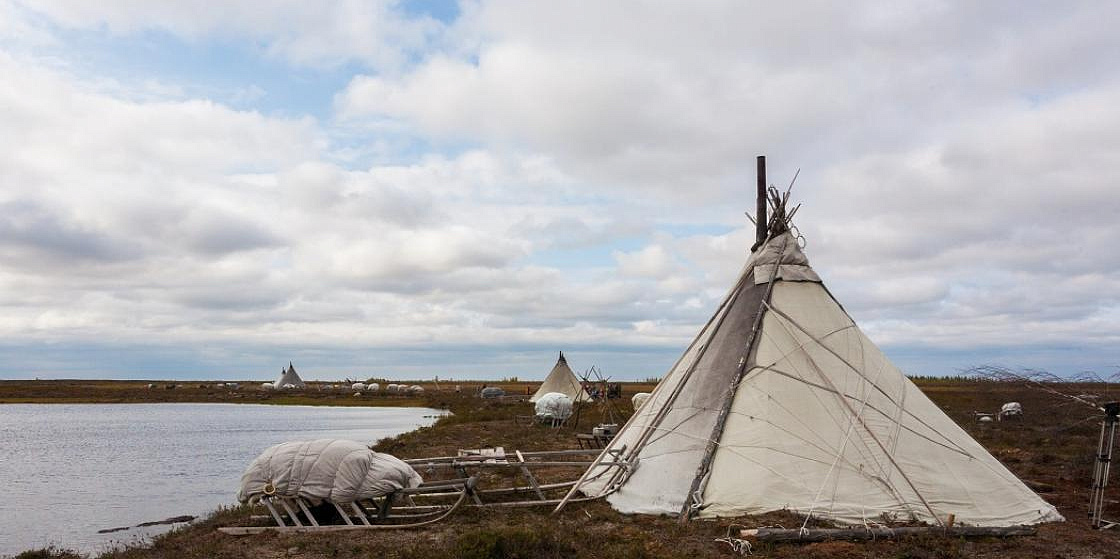
Photo: Golovin Georgiy/GeoPhoto.ru
Yamal’s Experience in Addressing Indigenous Issues Shapes Federal Policies
Effective from 7 February 2022, new regulations adopted by the federal government on 4 October this year will enable Russian nationals of indigenous descent to apply for benefits via Multifunctional Public Services Centers (MPSCs). In Russia, members of indigenous communities listed as such in a special federal registry are entitled to certain benefits under law.
A new procedure will make claiming benefits by people of indigenous ancestry much easier than before, the Government says. They will no longer be required to collect the documents needed for proving their ethnic identity -- this task will be handled by MPSCs through their interagency document exchange system. Those who live in remote areas will be able to submit their applications through their respective communities.
The updated procedure has been extensively tested in the Yamal-Nenets Autonomous District prior to adoption at the federal level. Yamal was the first Russian region to have introduced both the indigenous registry and the service of processing applications at MPSCs.
The introduction of a simpler procedure for applying for being listed as an indigenous person is an important step forward in terms of Russian indigenous policies in the Arctic. As a matter of fact, being a registered member of an indigenous community in Russia gives access to special rights and privileges such as traditional land use benefits, tax exemptions etc. Apart from this, one should bear in mind that most Russia’s indigenous communities live in the High North. In other words, it was their members who had the most trouble applying for the mentioned status and the benefits associated with it, as they were required to collect paper documents and submit them to offices, which, as a rule, were located far from their home.
There is also an international aspect to it. As the country that currently holds the chairmanship in the Arctic Council, Russia has formally pledged to advance the indigenous rights agenda in the Arctic affairs. In this light, the new ways of addressing indigenous issues in the Arctic adopted by Russia may give some food for thought to other AC member nations.
Arctic Today is a column by PORA CEO Alexander Stotskiy analyzing major international, national and regional events and trends in the Arctic.
A new procedure will make claiming benefits by people of indigenous ancestry much easier than before, the Government says. They will no longer be required to collect the documents needed for proving their ethnic identity -- this task will be handled by MPSCs through their interagency document exchange system. Those who live in remote areas will be able to submit their applications through their respective communities.
The updated procedure has been extensively tested in the Yamal-Nenets Autonomous District prior to adoption at the federal level. Yamal was the first Russian region to have introduced both the indigenous registry and the service of processing applications at MPSCs.
The introduction of a simpler procedure for applying for being listed as an indigenous person is an important step forward in terms of Russian indigenous policies in the Arctic. As a matter of fact, being a registered member of an indigenous community in Russia gives access to special rights and privileges such as traditional land use benefits, tax exemptions etc. Apart from this, one should bear in mind that most Russia’s indigenous communities live in the High North. In other words, it was their members who had the most trouble applying for the mentioned status and the benefits associated with it, as they were required to collect paper documents and submit them to offices, which, as a rule, were located far from their home.
There is also an international aspect to it. As the country that currently holds the chairmanship in the Arctic Council, Russia has formally pledged to advance the indigenous rights agenda in the Arctic affairs. In this light, the new ways of addressing indigenous issues in the Arctic adopted by Russia may give some food for thought to other AC member nations.
Arctic Today is a column by PORA CEO Alexander Stotskiy analyzing major international, national and regional events and trends in the Arctic.
7 October 2021




